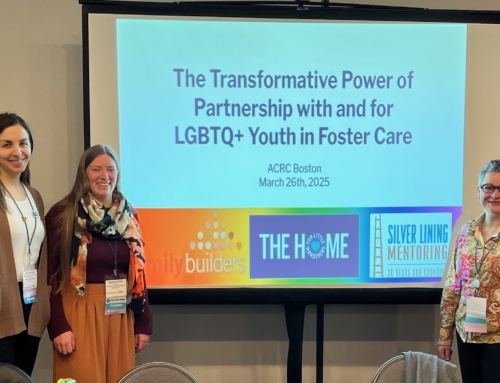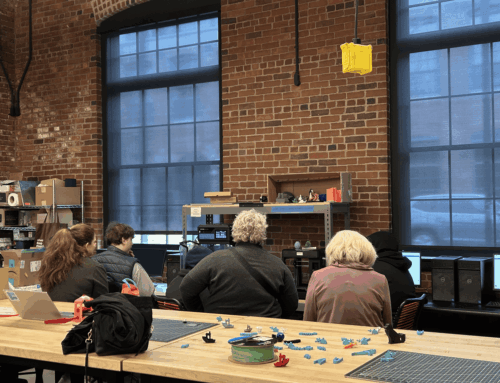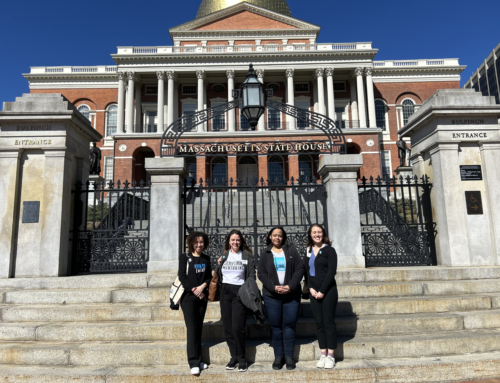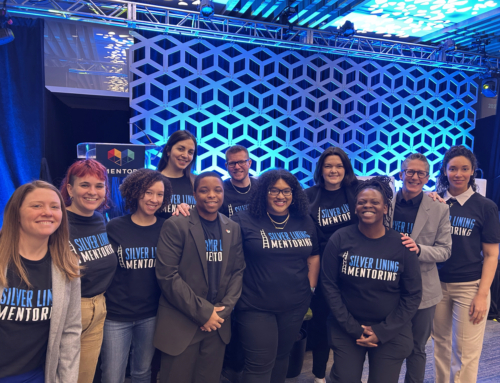See the original blog post here.
Written by Shelby Sih, Marketing and Communications Co-op
Adoption and Foster Care Mentoring (AFC) might just be “the family of all families.” It’s not like some child welfare organizations that mandate youth to participate and only provide services until they reach the age of 18. Instead, AFC is in it for the long-haul and its innovative approach is making a profound impact on the lives of the youth AFC serves.
As a relationship and resource building organization, AFC works to provide foster care youth with long-term, meaningful connections and essential life skills through its two main programs. Its flagship program, AFC Mentors, matches a foster care youth with an adult mentor through a highly meticulous process. Applicants are put through a 90-minute information session, lengthy written application, a two hour clinical interview, and a nine-hour training session. Even after completing this entire process, AFC accepts less than 50 percent of applicants to be mentors. “We’re looking for people who are flexible, open minded, consistent and who will meet young people right where they are.” Swettberg explains. “The magic is in the making of the match and in providing intensive support to both the mentor and the mentee throughout the lifetime of the relationship.” AFC’s rigorous match-making process has proven to be successful. Although the up front commitment is only one year, most of AFC’s mentoring relationships end up lasting much longer. One mentee remarks, “She’s not just a mentor anymore, but more of a sister. We’re like family now.”
For older foster care youth who might be looking for stronger peer relationships, AFC offers theAFC Leaders program. It’s designed specifically for youth aging out of the foster care system and teaches them essential life skills to be successful adults, ranging from navigating public transportation, to saving money, to writing a resume and going on interviews. Swettberg explains the importance of this program “because their experience is of being uprooted over and over again… young people don’t have a chance to learn the essential life skills they need that many people have the opportunity to learn in their families of origin.” To incentivize teens to learn these skills and not have to choose between AFC and a minimum wage job, AFC offers a Learn and Earn program where AFC pays their youth who demonstrate proficiency in a life skill. If the youth can then save up enough money towards an independent living goal, such as a laptop or one month’s rent, AFC will offer a financial match for the youth’s savings.
While these programs describe the work AFC does, the real value of the organization lies in the relationships and connections it fosters. The advantages of strong mentoring relationships to these youth are invaluable. Swettberg says an increase in self-esteem and the ability to trust other adults are two of the main benefits, not to mention some of the most critical building blocks for human development. “Creating a sense of belonging is essential for healthy development and it is the key to our theory of change,” she remarks. And while some people may brush past these as “soft” skills not of high importance, Swettberg believes that these youth knowing they “have someone in their corner” is critical to their sense of self and ultimately to youths’ ability to set and achieve goals. She further explains, “young people cannot go on to develop as healthy independent adults if that sense of belonging isn’t in place…and that’s what we’re here to do.”
Creating this sense of belonging is no simple task. Perhaps unsurprisingly, youth in the child welfare system have been considered the most vulnerable population in our society, and LGBTQ identified youth within this demographic, who AFC specifically targets through a population-specific mentoring initiative, are particularly vulnerable. Most of the youth AFC serves bounce around frequently from home to home and program to program. There are few opportunities for positive one-on-one interactions with an adult, and when youth do experience this, it’s typically through a mandated service where they know the adults there are paid to spend time with them. Having a caring, reliable adult figure in their life and feeling any sense of belonging can be a far-off concept for youth in foster care.
Luckily, this is where AFC steps in to change the patterns the youth have grown accustomed to facing. When asked to describe what AFC means to the youth, words like consistency, safe environment, resourceful, positive, supportive, and family are thrown around. AFC’s young people have refered to AFC as the “family of all families.” And in many ways, this says it all. “When our youth think of us as family,” Swettberg remarks, “it makes me hopeful about the transformative power of the connections we’re helping to create. Our youth are incredibly resilient and we know that they benefit tremendously from positive mentoring relationships. At AFC we’re working toward a future where all young people know they are valued and capable of greatness.”
As a 2014 Social Innovator, Swettberg appreciates the opportunity it’s giving AFC to reach more youth and make a greater impact. Swettberg says one of the best parts of being an Innovator is “working with skilled consultants who support us in taking on growth related projects that may have otherwise been on the back burner, like clarifying a five minute pitch and developing a written prospectus.” In addition, she says being able to hone AFC’s message, look at a growth trajectory, and start planning for the future have been greatly valued. At the same time, Swettberg wants to remain flexible in order to thoughtfully navigate the changing realms of child welfare and mentoring. “I hope that in ten years we are nimble enough to continue to meet the most pressing needs of youth in foster care. That’s the end game for us: being able to listen and offer effective innovative services to respond to the needs of our young people.” She believes AFC will continue to focus on mentoring and life skills resources for their youth, but she also acknowledges that she’s leaving the door open: “Young people in foster care know the local landscape, they can influence the direction of our service delivery by saying ‘no one is doing this, can AFC help?”
But for now, Swettberg is trying to soak up all she can and take full advantage of the different opportunities and resources available through the Social Innovation Forum. “It feels like we get to add brains and brawn to our team” Swettberg remarks, “We have the Root Cause staff and consultants standing with us, helping to move mountains in the service of our vision.”
As AFC Mentoring is learning and growing through the Social Innovation Forum, it continues to strengthen the thing it does best: create a sense of belonging for youth who have been removed from their families. With a support group of clinical workers, program staff, mentors and fellow mentees behind each of the youth in the program, it’s no wonder AFC feels like the family of all families.






